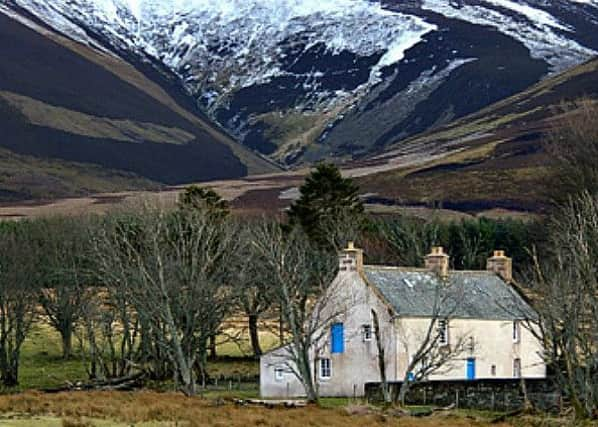The remote hideaway of Scotland's secret 'heather priests'


Scalan Seminary, which dates to 1716, was then Scotland’s only teaching college for priests and set up to secure a future for the faith following the brutal years of the Reformation.
With the help of the Duke of Gordon, himself a Catholic, the seminary was built in the remote location near Tomintoul with the modest property naturally shielded by the undulating terrain and tiny access track.
Advertisement
Hide AdAdvertisement
Hide AdFather Michael Briody, chairman of the Scalan Association, said those living at the seminary had lived in danger given the penal laws of the day.
With Hanoverian soldiers routinely patrolling the countryside following the 1715 Jacobite Uprising, Father Briody claimed the residents of the seminary, which sat among a farming settlement, risked threats and attack.
During the 1720s, at least two attacks were recorded at Scalan, where 64 priests were trained until its closure in 1799.
Worse was to come as Charles Edward Stuart’s 1745 Uprising was staged - with Scalan was completely destroyed by Hanoverians following the failed rebellion.
Advertisement
Hide AdAdvertisement
Hide AdFather Briody added: “One of the big disasters was the 1745 Jacobite rebellion.
“By that times things were beginning to settle down and Scalan was considered a relatively safe place.
“People by then weren’t really interested in how you worshipped God. But they were interested in your politics and if you were Catholic, it was presumed you were a Jacobite.
“Scalan had been the subject of some attacks but it was completely destroyed after the battle.”
Advertisement
Hide AdAdvertisement
Hide AdIt is understood that no one was hurt after the property was set ablaze, with vestments removed from the seminary before the attack.
In 1794, Bishop John Geddes drew together a number of recollections of how the 1745 rebellion impacted Catholics in Scotland.
He noted how mass could only be celebrated in secret - often at night - and that priests couldn’t stay in the same place for long. Letters were often written in Latin and Italian.
If English was used, code words became commonplace. Rome was ‘Old Town’ and a priest was a ‘labourer’.
Advertisement
Hide AdAdvertisement
Hide AdScalan became known as ‘the shop’ and seminarians were referred to as ‘prentices’.
Several priests and missionaries are known to have assisted in the 1745 rebellion by raising support in their parishes, serving as chaplains to regiments or fighting in the field.
Jesuit priest Alexander Cameron, brother of Cameron of Lochiel, the Highland chief who played a pivotal role during the ‘45, was taken prisoner following Culloden and put onboard the warship HMS Furnace.
He was not allowed a bed to lie on, except one made of ships cables. He fell ill and Lord Albemarle ordered him to be put ashore. However, the request was refused and the priest, whose role during the rising remains unclear, was denied any bedding or clothes.
He died soon after HMS Furnace arrived in the Thames.
Advertisement
Hide AdAdvertisement
Hide AdFather Briody added: “Roman didn’t want the priests to get involved in the rebellion but it wasn’t that easy for them.
“The priests were born and bred and living in with the people and it would have been very difficult for them not to have picked up their aspirations.
“Of course, to have the restoration of the Stuarts was seen as desirable. It would have meant that Catholics would have their freedom once again.”
The remote seminary at Scalan was deemed no longer necessary following the Catholic Relief Act of 1793, which repealed many of the earlier penal laws which suppressed the faith.
Advertisement
Hide AdAdvertisement
Hide AdA new larger college was established at Aquhorties, near Inverurie in 1799.
An annual pilgrimage is made to Scalan on the first Sunday of July with the former seminary opened to the public on occasion.
